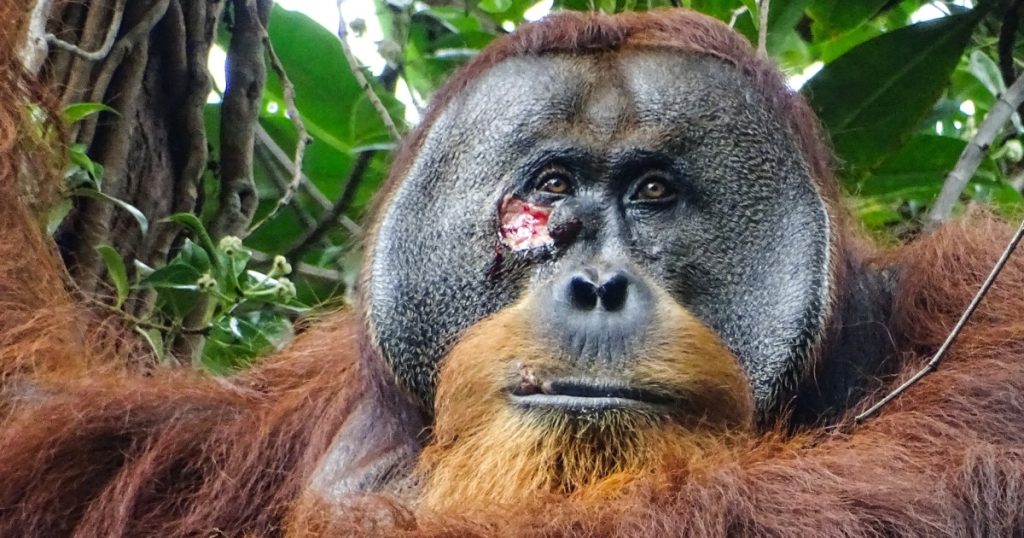Researchers have recently discovered evidence that orangutans are capable of self-medicating by using pain-relieving plants. This discovery was made possible by observing an orangutan named Rakus in Indonesia’s Gunung Leuser National Park. Rakus was seen applying leaves to a wound on his body, which eventually healed without showing any signs of infection. The researchers believe that this behavior demonstrates the great apes’ ability to identify and use medicines, possibly dating back to a shared ancestor with humans.
Rakus resides in a protected area of rainforest called the Suaq Balimbing research area, where scientists have been observing orangutans since 1994. Rakus, who was first spotted in 2009, has been closely monitored by researchers who spend hours following his daily activities without causing any disturbance. This behavior of self-medication exhibited by Rakus was previously unheard of among the orangutan population in the area, leaving researchers puzzled about how he acquired this knowledge.
It is speculated that Rakus may have learned to treat his wound through individual innovation after accidentally coming into contact with the pain-relieving leaf. Alternatively, he might have learned this behavior culturally from other orangutans at an early age. Orangutans are known to learn socially and are proficient with using tools, showing a high level of intelligence in acquiring knowledge about various foods. The discovery of Rakus self-medicating provides valuable insight into the learning capabilities and natural behaviors of orangutans.
The practice of self-medication among animals has been recognized by researchers in recent decades, with examples ranging from chimpanzees eating specific plants to treat parasites to orangutans using medicinal plants for joint and bone pain. The famous primatologist Jane Goodall noticed chimpanzees in Tanzania eating whole leaves for medicinal purposes in the 1960s. Michael Huffman, an associate professor, believes that animals have control over their lives and can adapt their behaviors to ensure survival. He theorizes that ancient humans may have learned about medicinal plants from close observations of animals.
The similarity between humans and orangutans, who share 97% of their genetic makeup, has led researchers to believe that studying the self-medicating behavior of animals could provide insights into how ancient primates developed their inclination towards medicines. Isabelle Laumer, a primatologist involved in the study, highlighted the importance of learning from orangutans, who are critically endangered due to habitat destruction and climate change. The findings from the research suggest that humans might have learned about medicinal plants from observing and mimicking animal behaviors, further solidifying the connection between humans and nature.


